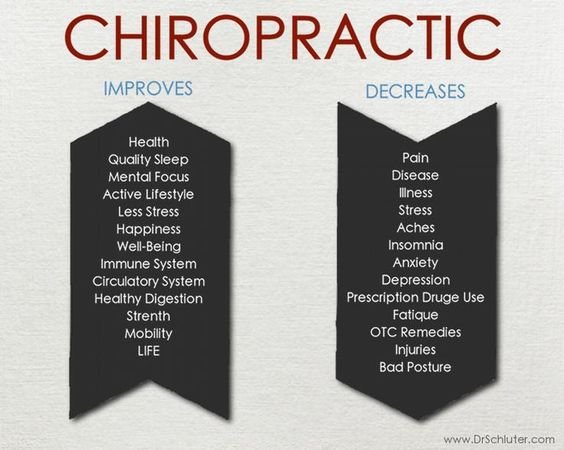Are Chiropractic Care Adjustments Habit-Forming? Differentiating Reality From Myth
Are Chiropractic Care Adjustments Habit-Forming? Differentiating Reality From Myth
Blog Article
Post Produced By-Klint Hardin
You might have heard that chiropractic adjustments can lead to an addictive reliance, but that's a common mistaken belief. Several patients discover relief without developing any type of dependency. It is necessary to comprehend truth purpose of these changes and exactly how they fit into your total wellness technique. So, just what does the science state about chiropractic care and your health? Let's check out the truths.
Understanding Chiropractic Adjustments and Their Purpose
When you think about chiropractic care modifications, it's necessary to understand their purpose and how they work. These adjustments aim to correct imbalances in your spine and joints, promoting far better placement and movement. By applying regulated force to certain locations, chiropractors aid reduce pain, boost feature, and boost your general wellness.
Chiropractic care focuses on your body's ability to recover itself, stressing the connection between the spine and the nerve system. When your spine is lined up, it can minimize nerve interference, allowing your body to function optimally.
Regular modifications might likewise help stop future problems, keeping you active and pain-free. Ultimately, chiropractic changes offer to support your health and wellness, improve flexibility, and improve your lifestyle.
Common Myths Concerning Addiction and Chiropractic Care Care
Lots of people hold mistaken beliefs regarding the relationship between chiropractic treatment and dependency therapy. One typical myth is that chiropractic care adjustments develop an addiction-like dependence. Actually, several clients find relief from discomfort and pain, yet this doesn't suggest they develop a mental or physical dependency.
Another myth is that chiropractics physician are just trying to maintain you returning for even more changes. Most chiropractic doctors prioritize your well-being and go for long-term wellness instead of regular check outs.
In addition, some think chiropractic care can replace standard addiction treatments, however it must complement, not substitute, evidence-based treatments. Recognizing these misconceptions can assist you make notified selections regarding your wellness and health without dropping target to misinformation.
The Science Behind Chiropractic Adjustments and Individual Experience
While some might question the efficiency of chiropractic changes, an expanding body of research study supports their function in minimizing pain and boosting general function.
Researches indicate that spinal manipulation can minimize discomfort from conditions like reduced neck and back pain, tension frustrations, and neck discomfort. When you undertake chiropractic care, the modifications intend to recover correct placement, boosting your body's natural recovery capabilities.
Many patients report increased flexibility and a greater sense of well-being after treatment. Furthermore, the restorative partnership you develop with your chiropractic specialist can boost your experience, as they offer tailored care tailored to your requirements.
This mix of scientific backing and positive patient experiences helps make clear why chiropractic changes work for numerous individuals looking for relief.
Verdict
In conclusion, chiropractic care modifications aren't addicting; they're created to boost your wellness and advertise aggressive health care. By unmasking the misconceptions surrounding dependency, it's clear that these treatments can give substantial alleviation without developing a cycle of addiction. Welcoming https://should-i-go-to-chiropract95172.mdkblog.com/41459428/advertising-health-with-chiropractic-adjustments-involves-fascinating-science-find-how-spine-adjustment-influences-your-total-wellness-and-health as a corresponding technique to typical treatments can cause better health end results. So, if pain in my lower back about changes, felt confident that they have to do with improving your quality of life, not producing a dependence.
